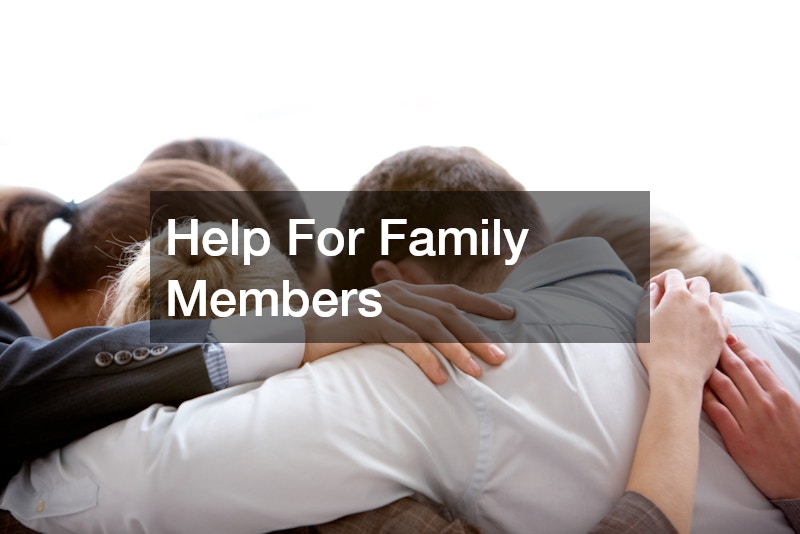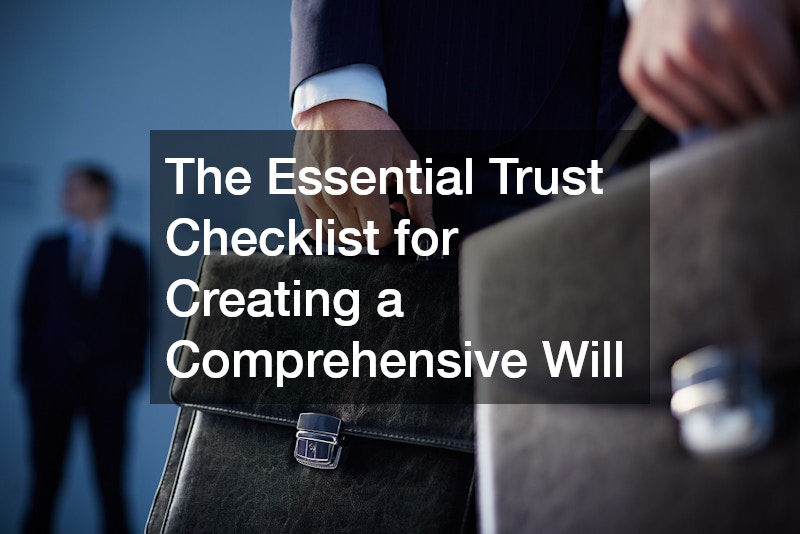Introduction
The process of aging is a unique journey that requires thoughtful planning and consideration. As we or our loved ones approach the later stages of life, it becomes crucial to ensure a transition that is seamless, dignified, and aligned with personal wishes. From accessing medical records to planning end-of-life desires, each step must be meticulously crafted to provide the highest comfort and security. A trust checklist becomes an invaluable tool in navigating these nuances, ensuring all legal, medical, and personal affairs are in order. This article explores various facets of aging care, each vital for maintaining quality of life and peace of mind. Whether it is access to medical records or organizing funeral plans, understanding these elements is crucial for a dignified life journey. By the end of this guide, readers will be equipped with knowledge and strategies to foster a supportive environment for themselves or their loved ones.
Access to Medical Records

Having the ability to access medical records easily is vital for effective healthcare management. This access ensures that healthcare providers, whether in a doctor office or via telehealth, have all the necessary information to make informed decisions. A trust checklist aids in organizing these records, ensuring they are up-to-date and easily accessible in different healthcare settings.
Moreover, proper documentation mitigates the risks of medical errors and enhances communication among physicians. When individuals transition between doctors or specialists, a comprehensive record is essential for continuity of care. Utilizing a trust checklist can help streamline this process, maintaining detailed documentation at all times.
Finally, individuals should be aware of their rights concerning medical records under laws such as HIPAA. Ensuring these records are secure yet accessible can relieve unnecessary stress for patients and their families. A trust checklist plays an integral role in safeguarding this sensitive information while promoting transparent communication with healthcare professionals.
Maintaining Routine Care
Routine healthcare is a cornerstone of maintaining overall well-being, especially as one ages. Activities such as dental cleaning are not just cosmetic but integral to preventing more severe health issues. Incorporating routine care into a trust checklist ensures these critical appointments are not overlooked amid other obligations.
The benefits of keeping up with regular check-ups include early detection of potential problems and the ability to maintain a proactive approach to health. By having a structured plan, individuals can address any developing health concerns before they exacerbate them. A trust checklist serves to schedule and remind about necessary healthcare visits efficiently.
Moreover, caregivers and family members need to remain informed about the routine care needs of their loved ones. Open communication alongside an organized trust checklist can alleviate misunderstandings and ensure comprehensive care. Families can also coordinate on this checklist to provide support and reminders for these routine healthcare activities.
Comfortable Living
As we age, making our living environment safe and comfortable is a priority. Installing chair lifts and other accessibility enhancements can dramatically improve the quality of life. These adjustments can be systematically addressed using a trust checklist, ensuring that they are budgeted for and implemented effectively.
Physical comfort significantly impacts mental well-being. Creating a home that is inviting and secure can reduce anxiety and enhance daily living. Those transitioning into this stage of life should engage with family members to discuss these comfort-related adjustments and include them in a trust checklist.
Additionally, incorporating these needs into a comprehensive trust checklist alleviates the burden of sudden changes or unexpected costs. By planning ahead, individuals and their families can make informed decisions about necessary modifications. This provides peace of mind, knowing that every practical step has been taken to ensure a comfortable living situation.
Assisted Care Options

Deciding on assisted care options is a significant step that can be emotionally challenging. In home care offers a viable alternative that promotes independence while ensuring the necessary support. A trust checklist will help compare different options, weighing the benefits and costs associated with each.
Assisted care is not just about health, but also encompasses social and emotional well-being. Individuals can choose from a wide range of in home care services, personalized to meet specific needs. A well-organized trust checklist can ensure that the selected care option aligns with personal circumstances and plans.
It’s crucial to regularly evaluate the chosen care plan and adjust it based on evolving needs. An updated trust checklist helps track these changes, confirming that services remain in sync with personal goals. Open communication with caregivers and using a checklist ensures quality, individualized care throughout the aging process.
End-of-life Care
End-of-life care decisions often carry a high emotional weight, yet they are essential for providing closure and dignity. Hospice care focuses on comfort, allowing individuals to pass peacefully without unnecessary interventions. Employing a trust checklist can help determine the right hospice services, ensuring they meet specific wishes and religious or cultural needs.
One of the primary benefits of hospice care is its patient-centered approach that nurtures physical, emotional, and spiritual health. This care model supports both the individual and their family, offering guidance through a complex transitional phase. A trust checklist dedicated to end-of-life decisions ensures that every desire is articulated and respected.
Moreover, it’s important to communicate these preferences early, allowing for considerate planning and family discussions. The trust checklist becomes a living document, evolving as wishes change over time, creating a transparent guide for all involved. Having clear documentation helps alleviate stress and allows families to focus on spending quality time together.
Last Wishes
When considering last wishes, it’s vital to approach the subject with sensitivity and preparedness. Funeral plans are often difficult to discuss, but they form a critical part of honoring a life well-lived. A trust checklist can simplify this process, outlining every detail from the venue to selected readings and music.
Making these preparations in advance, and writing them down in a trust checklist, prevents additional emotional burden during a time of loss. It allows the family to focus on celebrating their loved one’s life rather than coordinating logistics. With so many elements to consider, a comprehensive list serves as a valuable resource during an otherwise overwhelming period.
Furthermore, involving family members in these discussions can provide them with emotional comfort, knowing that they honor their last wishes accurately. Using a trust checklist, individuals can ensure every aspect of their funeral plans reflects personal beliefs and cherished traditions. This not only promotes peace of mind in life but ensures a dignified farewell.
Recruiting Legal Help

Legal consultation is crucial in managing the complexities associated with estate planning and other elderly care decisions. An estate attorney can provide guidance on creating wills, trusts, and other important legal documents. Employing a trust checklist aids in organizing these legal necessities, ensuring nothing is overlooked in the planning process.
An estate attorney not only helps in the creation of these documents but also provides peace of mind that all assets are properly protected and distributed. It’s vital to choose a competent professional who specializes in elder law to receive the most relevant advice and support. A trust checklist will also include criteria for evaluating and selecting the right legal partner.
As legal regulations can vary significantly, staying informed with the help of an estate attorney is essential. Updating the trust checklist regularly to reflect any legal changes ensures continued compliance and protection. This, in turn, minimizes family disputes and ensures a smooth transition of assets according to explicit wishes.
Gravesite Desires
Choosing a gravesite is an intensely personal decision, marked by a reflection of one’s life and beliefs. Selecting the right site and arrangements, including the best florist for floral tributes, is part of crafting a peaceful resting place. The trust checklist can encompass these desires, ensuring every detail aligns with personal values and aesthetics.
Flowers and other aesthetic parts of grave arrangements hold symbolic meanings, providing comfort to both the departed and those mourning. By pre-selecting the best florist and specific arrangements, individuals can ensure that their gravesite respects their wishes. This process offers a sense of control and comfort, knowing a personal touch continues beyond life.
Furthermore, a trust checklist can help in documenting any pre-purchased plots or arrangements, minimizing confusion and potential family disagreements. By addressing these needs early, individuals offer a final gift of love and direction to their surviving relatives. It exemplifies an appreciation for life’s journey and secures a sense of legacy and dignity.
Tying Up Loose Ends
In the wake of loss, addressing outstanding affairs such as financial and medical bill obligations is essential. Medical billing outsourcing can greatly assist families during this challenging time, ensuring efficient clearing of any medical debts. Including this aspect in a trust checklist guarantees that such tasks are not neglected amid emotional upheaval.
Medical billing outsourcing specialists have the expertise to manage these transactions transparently, relieving family members from additional administrative stress. Furthermore, a trust checklist provides a timeline and steps for addressing these final financial aspects, adhering to legal and personal expectations. It simplifies what can otherwise be a bewildering array of tasks.
This final phase is about closure — both emotional and logistical. Clarifying outstanding details and engaging professional services where necessary prevents lingering obligations that might impact family members negatively. A thorough trust checklist not only eases the family’s burden but also ensures a respectful completion of all life chapters.
Help For Family Members

The grieving process is challenging, and family members often require support to navigate this emotional journey. Counseling centers provide valuable resources for dealing with grief, offering therapy or support groups for those in need. Including contact information for a local counseling center in a trust checklist can make it easier for the family to access support promptly.
Navigating the emotions of loss can significantly benefit from professional guidance, helping individuals healthily move through stages of grief. They provide a safe space to express emotions, share memories, and cultivate coping strategies. Having these resources readily available in a trust checklist offers immediate access to assistance for those struggling.
Ultimately, a planned approach to emotional support helps in rebuilding life beyond loss. By considering the needs of surviving family members in the trust checklist, individuals demonstrate responsible foresight and compassion. This consideration underscores a loving commitment to the well-being of those left behind.
Conclusion
Caring for oneself or loved ones in later life stages is a multifaceted task requiring careful planning and support. From ensuring access to medical records to preparing for end-of-life wishes, each aspect plays a crucial role in preserving dignity, comfort, and trust. A trust checklist acts as a vital instrument, providing a structured approach to navigate these complex needs seamlessly. Engaging with professionals like estate attorneys and relying on trusted healthcare practices ensures a comprehensive plan. These preparations afford individuals the peace of mind that their needs and desires will be respected fully, allowing for a more serene aging process.
Furthermore, a trust checklist serves as a living document that evolves as circumstances change. It is essential to regularly review and update it to reflect current needs, preferences, and any legal adjustments. This dynamic approach helps maintain relevancy and ensures that plans are aligned with evolving personal or medical situations. By proactively updating this checklist, individuals can respond to life’s uncertainties with confidence, knowing that their documented wishes remain current and actionable.
One of the significant benefits of maintaining a trust checklist is the reduction of stress and confusion for family members. During moments of crisis or grief, loved ones can refer to this organized guide to make informed decisions with clarity and assurance. This minimizes the emotional and logistical burden that often accompanies the aging process or sudden health events. In addition, involving trusted family members in discussions about the trust checklist promotes transparency and unity. This collaborative approach fosters a supportive network where each person knows their role and responsibilities.
Beyond the immediate family, having a well-prepared trust checklist can also assist caregivers and healthcare providers in delivering consistent and personalized care. Clear instructions regarding medical preferences, living arrangements, and end-of-life choices empower caregivers to uphold an individual’s wishes. This level of detail and preparation emphasizes a commitment to personal dignity and continuity of care, reflecting a holistic view of what it means to age gracefully.

